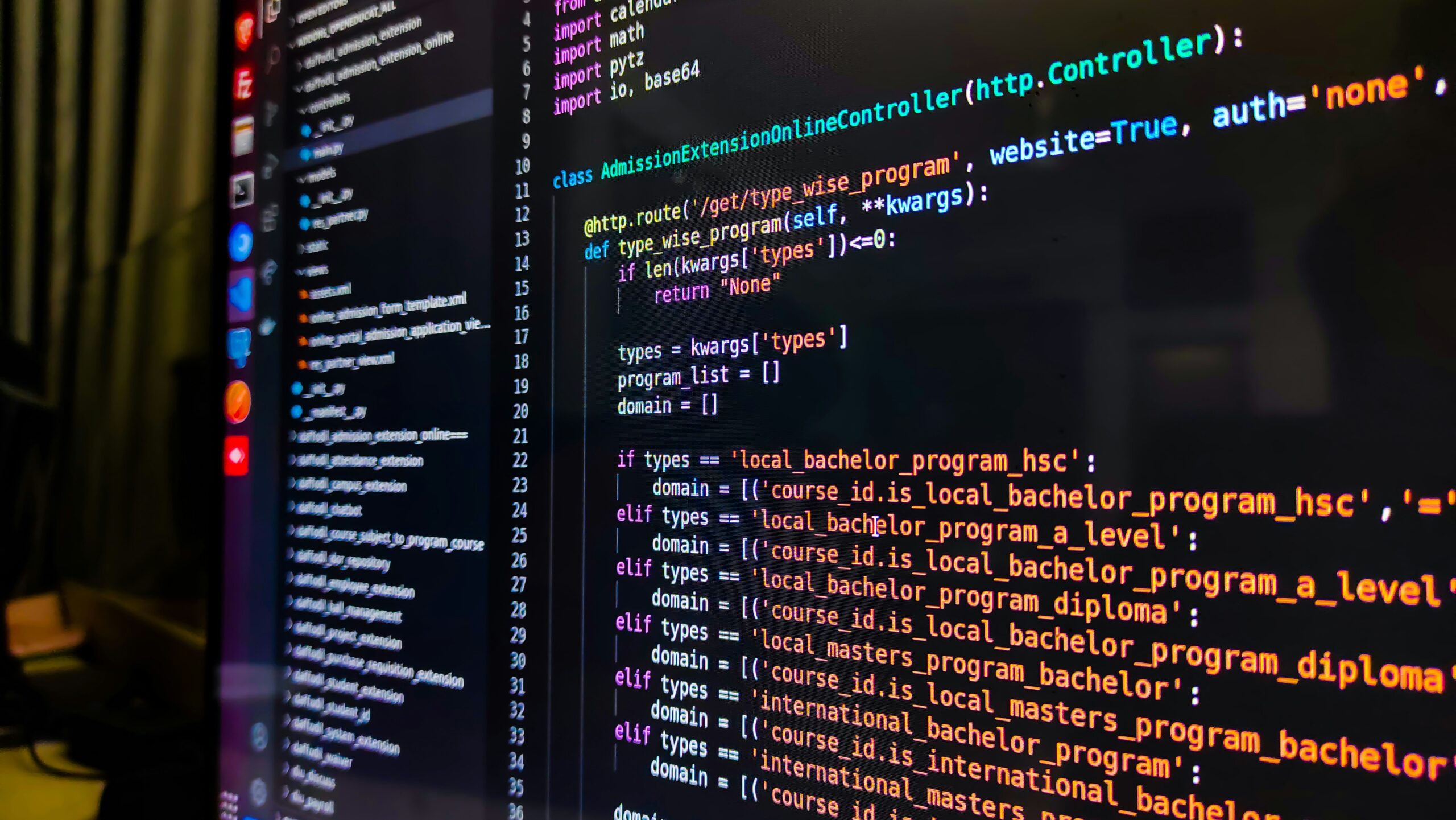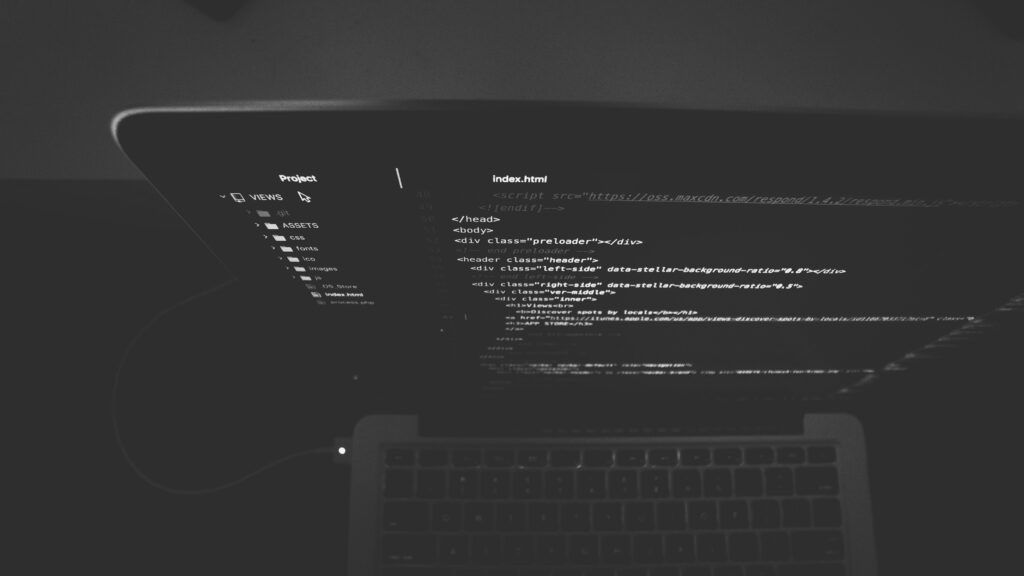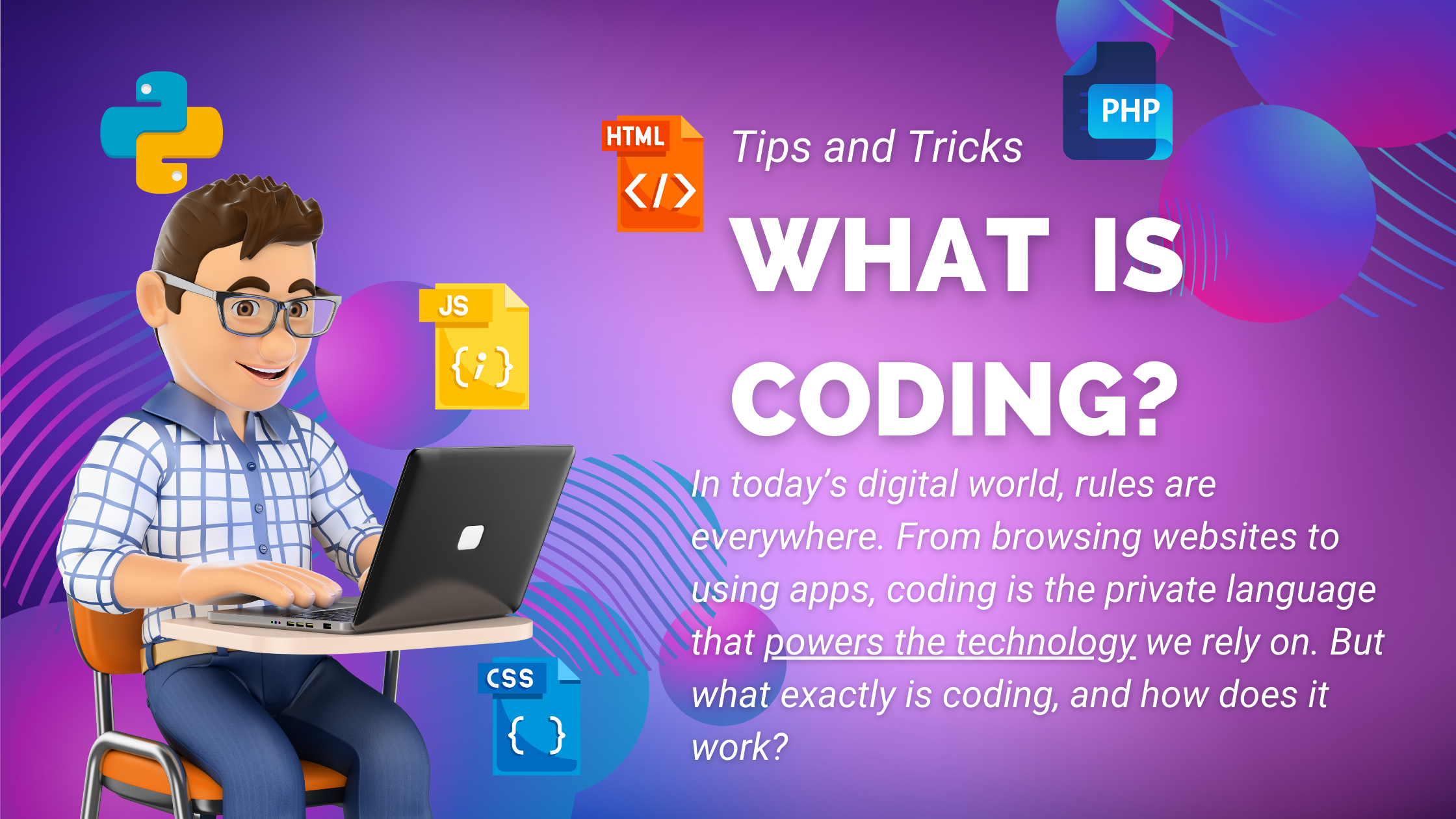In today’s digital world, rules are everywhere. From browsing websites to using apps, coding is the private language that powers the technology we rely on. But what exactly is coding, and how does it work?
In Simple Terms
Coding, also known as programming, is the process of creating instructions that a computer follows. These instructions are written in a specific programming language and tell the computer what tasks to perform and how. Just as humans use language to communicate, code allows us to communicate with computers and tell them what we want them to do.

How coding works
Like giving instructions to a friend, coding translates our thoughts into a computer-understandable language. Here’s an in-depth look at how coding works:
Choosing the right language
Imagine that you want your friend to help you bake a cake. You won’t talk in complicated physics terms, and you will use clear, simple instructions. That’s how programmers choose the right programming language for the job. Popular choices include Python (known for its readability) or Java (powerful for complex applications).

References
Programmers write code using text editors or specialized software. The rules are instructional texts and often use keywords similar to English and argumentative structure. These instructions tell the computer what data to work with, what calculations to perform, and how to display the results.
Behind the Scenes – Translation
Not all languages are created equal. While humans understand code, computers only understand ones and zeros (machine code). There are two main methods to bridge this gap:
**Compilers:** These programs translate the entire code into machine code at once. This machine code is a specific set of instructions for the computer’s processor to follow.
**Interpreters:** These programs translate the code line by line, executing each line as they go. This is useful for quicker testing and debugging (finding and fixing errors)
Execution – The Computer Takes Over
Once the code is translated into machine code, it is retrieved by the computer program. It carefully follows instructions, performs calculations, works with data, and monitors the progress of the program.
The Output – Looking at the results
The end result of code enforcement can be anything from displaying information on a screen to complex animation for use in video games. This is the output that users get when interacting with a coded program.
Analogy: Following a recipe
Take a recipe as a rule and think of the chef as a computer. A recipe (code) specifies the steps (instructions) needed to produce a word (program output). Following the recipe (code translation), the chef (computer) executes the instructions, resulting in the final dish (program output).
Why is Coding Important?
In these day’s virtual age, coding has become a key talent, offering advantages that make it bigger beyond programming. Here’s why coding is crucial:
- Empowering Creativity: The Code breathes lifestyles into the virtual global. From the web sites and apps you use each day to video video games and AI-powered devices, coding gives you the strength to create your very own virtual reviews.
- Increases productiveness: Common tasks may be computerized with rules, liberating up a while and decreasing mistakes. Imagine automating notifications or planning social media posts.
- Unlocking Data Insights: The quantity of records around us holds precious insights. Coding permits you to investigate and interpret these facts, revealing hidden patterns and informing higher selection making.
- Sharpening hassle-solving competencies: Coding involves breaking down complicated issues into logical steps. This technique to hassle solving goes beyond coding and allows you to solve challenges in any location.
- Encourage creativity: Although some see coding as merely technical, it can be tremendously creative. Coding lets you develop answers, put into effect new thoughts, and express yourself via digital creativity.
- Expanding Career Opportunities: Explore the giant use of coding capabilities in diverse industries. Whether you dream of turning into a software program developer, information scientist, or even a marketer, the usage of automation, coding opens the door to exciting career paths.
- Understanding the digital global: Understanding how law works in a technology-pushed global enables one to become extra knowledgeable. You can navigate the digital landscape with extra self assurance and make conscious alternatives approximately the era you engage with.
Getting Started with Coding
The world of law may seem complicated, but with the right resources and strategy, one can make one’s own legal journey! Here’s the breakdown to get you started:
Find your motivation
What sparked your interest in coding? Do you want to build websites, create games, automate projects? Knowing your goals will guide you in choosing the right language and materials.
Explore languages
Not all coding languages are created equal. Some, like Python, are known for their beginner-friendly syntax, while others, like C++, offer more power over complex applications. Explore popular alternatives such as Python, JavaScript, and Java to understand their capabilities and applications.
Embrace online content
The internet is full of free and paid resources for learning how to write code. Websites like Codecademy or Khan Academy. Khan Academy offers interactive learning and gamified learning experiences Coursera or edX and many other online -Forums offer beginner- friendly coding tutorials.
Use your community
Libraries and community centers often host coding workshops or events, providing opportunities to learn and gain hands-on experience alongside others. Don’t underestimate the power of personal contact and advice.
Start with Small Projects
Don’t immediately feel the need to create the next app that has never been available before. Start with small, achievable tasks that reinforce downward principles. Many online courses offer step-by-step instructions for creating programs with ease, allowing you to learn and build self-confidence.
Embrace the power of action
Regular workouts are key to learning any talent. Set aside time each day or week to work on your coding tasks. The more you code, the more cushty you can become about syntax and troubleshooting techniques.
Get to know the coding community
Online boards and groups like Stack Overflow are a haven for coders of all stages. Don’t hesitate to ask questions, seek help when you’re stuck, and research from others’ stories. Collaboration and knowledge sharing are valuable assets in the world of coding.
Celebrate accomplishments
Learning how to code can be tough, so celebrities, your points and your progress have a good time. Getting the job done, no matter how small, is a testament to your drive and ability to improve.
FAQs
Is it hard to learn coding?
Coding can help you gain knowledge of curves, however there are lots of features to make it easier for beginners. The problem depends on the specific programming language you pick and your earlier experience. However, with determination and practice, anyone can discover ways to create guidelines.
What are scripting languages?
There are many unique programming languages, each with their own strengths and weaknesses. Some popular languages for novices are Python, JavaScript and Java.
What jobs require coding capabilities?
Coding abilities are treasured for software builders, web developers, records analysts, and many other industries.
Do I want a diploma to discover ways to write code?
No, you don’t need a degree to realize how to code. There are many online sources and publications which can teach you the fundamentals. However, a diploma in computer technology or a related subject can assist with a coding profession.
What are the blessings of studying the way to write code?
Learning a way to code has many blessings, together with progressing trouble fixing, elevated creativity, and higher task possibilities. Coding can also be a fun and worthwhile way to express yourself and create new things.
